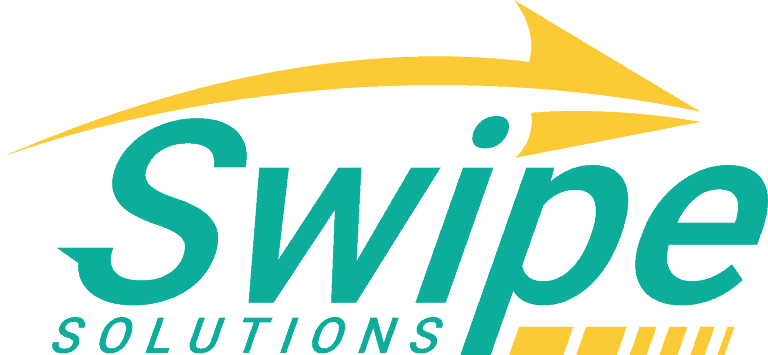The Ins and Outs of Payroll Loans
Payroll loans are for business owners who need quick funds to cover payroll expenses.
When employers do not have enough cash to make payroll, they must move assets, restructure or look for credit solutions. According to the Department of Labor, failing to pay employees is a violation of the Fair Labor Standards Act. Payroll loans are not the same as merchant cash advances. They differ slightly from traditional bank loan products, which take longer to complete application and approval processes. If you are short on cash for payroll, the good news is that there are several choices for varying sets of needs.
How Payroll Loans Work
These loans are often grouped with working capital loans. This is because business owners equate the expense of wages with general working capital.
Not all payroll loans are the same, and how they work depends on the type that you choose. In general, payroll loans have minimal enough terms to be considered short-term expenses. They are structured to be convenient.
The priority that lenders give to you if you need money by a certain time is an advantage that many payroll loans offer over traditional bank loans. For example, if you need money to cover payroll in a week, you may complete the process with an alternative lender within a few days. However, if the loan servicer is a traditional bank with a heavy workload and more verification steps, there may be a delay beyond your payroll deadline.
Features of Payroll Loans
Since there are many lenders online today, business owners have plenty of options for loan size, interest rates and repayment terms. As you prepare to find loan options, these are some important features to consider.
Security
Although most types of loans that are used to cover payroll do not require collateral, some come with a form of security.
With payroll loans, the majority of options are based on creditworthiness. While invoices do not work exactly the same as collateral, they are important parts of invoice factoring, which will be covered in a different section. Depending on the lender’s policies and the type of the loan, you may be required to provide one or more post-dated checks as a form of security.
Loan Amounts
Depending on a wide variety of factors, payroll lenders offer between $1,000 and $500,000. However, some businesses may qualify for more from certain lenders.
In addition to your credit profile and finances, the total amount that you qualify for may depend on your workforce size and their salary needs. For example, if you own a dental business with five dentists and five hygienists, you would need more than I do if I have a small restaurant with only five workers. If you qualify, most lenders usually provide enough to cover at least one pay period.
Interest Rates

Since there are several types of loans, interest rates start at 10% and can vary widely.
Your interest rate will depend on several factors. However, many lenders offer good interest rates for short-term loans. The existence of alternative lenders gives you more options than a traditional bank loan, which could be more expensive on a long-term basis. According to the FDIC, long-term financing is riskier for businesses because of the unpredictability of what can happen economically or internally to a business during a longer period.
Repayment Terms
Although loan terms also vary widely, the maximum term is usually about 18 months.
Lenders may consider your financial obligations and the size of your financial need. Since there are so many lenders with different loan structures, you may find that some require daily, weekly or monthly payments. The length of the term affects the payment frequency. For example, if my loan repayment term is only a month, I may have several weekly payments.
Funding Time
The funding speed is usually between 24 hours and a few days.
Depending on the lender, approval time may be affected by application processing volume, the completeness of required information and several other factors. For example, if a lender advertises 24-hour approval decisions, that may be extended if I forget to provide some of the required information. Since approval times can vary, it helps to apply as far in advance as possible. If you need funds for payday in a week, now is the best time to submit your loan application.
Types of Payroll Loans

Since there are alternative lenders in existence today, there are several types of loans that are used to cover payroll. These are the three most common choices.
Invoice Factoring
With this type of financing, you sell invoices to the lender in exchange for funds. The lender may pay you 80% or more of the total invoice value.
If you can rely on your upcoming customer payments, this may be a good option. Repayment is fulfilled when your customers pay the invoices that you sell. If your invoices have longer payment allowances, you pay more for interest than you would if they were shorter. Interest is often charged at a weekly rate for each week that the invoices remain unpaid. Rates can vary between 1% and 3% in many cases.
Lenders often provide funding within 24 hours with this type of financing. Loan amounts may be as low as $500 or higher than $500,000. For payroll, it is better to request only what you need. You must have a business history of at least six months to qualify, and many lenders require a minimum annual revenue of $50,000. Ideally, they prefer businesses with over $130,000 in annual revenue and at least a year of history. The minimum credit score is usually 600.
Business Line of Credit

Up to a specific limit, this type of financing lets you borrow as much as you need.
If your business is facing several months of hardships, this may be an option. You may not know exactly how much money to borrow. A line of credit has two phases. During the first phase, you borrow what you need. The second phase is the repayment term.
Limits may start at $10,000 and may be more than $500,000 for some applicants. Repayment terms usually vary between a few months and five years. Interest starts at about 7% if you have excellent credit. However, the minimum credit score for approval is 550, and it may be higher for some lenders. Ideally, lenders like to see a credit score above 630.
The minimum annual revenue for most business credit lines is about $100,000. However, lenders are more likely to approve you if it is higher. For example, if your annual revenue is $190,000 and mine is $101,000, you may be more likely to gain approval if we have similar credit profiles. Also, you must have been in business for at least a year to qualify. Lenders prefer longer business histories.
Business Loan
This is a simple type of loan that provides quick funding of working capital, a short repayment term and a reasonable interest rate.
If you need money to cover one, two or three pay periods, this may be the right solution. For example, if I pay my employees weekly and am short on cash this month, this would be the type of loan that I would likely choose for a specific sum to cover their pay.
A short-term loan for business purposes may be between $2,500 and $250,000. Repayment terms may be as short as a few months or as long as 18 months. Many lenders offer funding within several days. To qualify, you should have been in business now for at least nine months. Many lenders require a minimum annual revenue of $100,000 and a credit score that is over 550.
The ideal applicant for this type of loan should have a better credit and business profile. A better borrower profile can help you get a better rate. For short-term financing, a lender prefers to see a credit score that is above 600, more than two years of business experience and an annual revenue above $150,000.
Which Type of Loan Is Right for You?
If you are in a hurry and are trying to find the right loan product based on your needs, this set of guidelines will help you focus on the option that is most likely to fit:
- Invoice factoring is better for newer businesses.
- A business line of credit is better for covering pay periods for a longer time.
- A short-term business loan is better for quick funding of short-term payroll needs.
Although this is a general starting point for guidance, the right solution may be something other than what you first thought. For example, if your needs are of a long-term nature, you may want to first look at a line of credit. However, it may not be the ideal choice if you have the creditworthiness and business history to qualify for a larger loan with a repayment term of 18 months. If you lack the creditworthiness and minimum business history requirements, you may instead decide to look for multiple cycles of invoice factoring.
If you have a short-term need and a lower annual revenue, invoice factoring may be the right choice. It is also a good choice if you are sure that you can count on your customers to pay when their bills are due. A short-term loan is often the ideal choice. If you have a limited history or annual revenue, it may be harder to gain approval. However, if those factors do not apply to you, a short-term loan may be a good first option to explore.
How to Qualify for Payroll Loans
To qualify for a payroll loan, you will need to collect several pieces of information beforehand.
It helps to know your credit score ahead of time. If your score is between 500 and 550, it may be hard to get a loan. Credit scores between 550 and 600 usually come with higher interest rates. If your credit score is above 650, you stand a better chance of getting a better rate. As you prepare to start one or more applications, these are some of the most important pieces of information to gather:
- Your employer identification number and SSN.
- Documents that show your total business debts.
- Your tax information from the previous three years and your recent bank statements.
- Your company’s financial statements and reports.
In addition to providing financial statements for the past three years, provide a current one that is dated. It also helps to have profit and loss statements, balance sheets, aging accounts payable, aging accounts receivable, term debt information and your current net worth. Depending on the lender and the requirements, these may be helpful. With some lenders, you may need additional information.
Keep in mind that lenders prefer to work with companies that have clean financial and tax backgrounds. When other solutions are not available, some business owners also consider a personal loan for a one-time payroll fulfillment need. However, you should speak to your accountant before you make that decision.
Conclusion
If you have more than six months of business history, a credit score that is 600 or higher and an annual revenue that is above $50,000, a payroll loan may be the right solution for your business.
Here is a quick recap of the top potential benefits of payroll loans:
- Over the life of a short-term loan, the interest may be less expensive than a long-term bank loan.
- Payroll loans usually come with fixed interest rates.
- You may have several options for repayment terms.
A payroll loan gives you a quick way to meet your obligations to your workers. While loans may add to your expenses, they offer a way to avoid potential lawsuits from unhappy workers or from having to take more drastic financial steps. Companies that cannot afford to pay workers on a long-term basis often wind up filing for bankruptcy. If you think that your business will not qualify for any of these loans or most loans on the internet, there are other options. Also, there may be federal grants, loans or other types of relief from organizations that are designed to help struggling small businesses with various types of hardships.
Which type of loan would you prefer for your business, and what size of business do you have? We welcome you to share your thoughts or questions below in the comment section.



